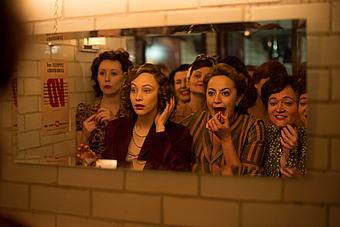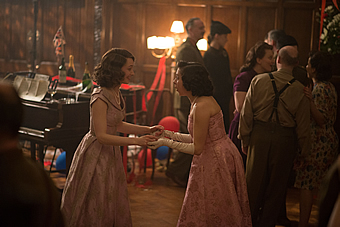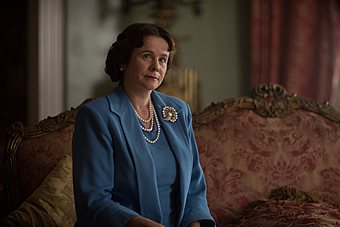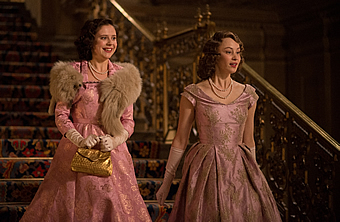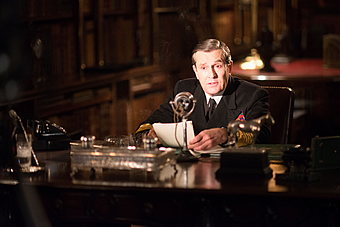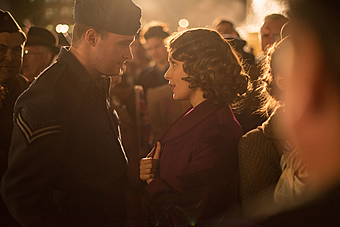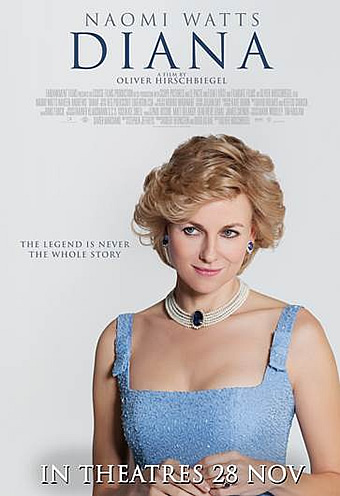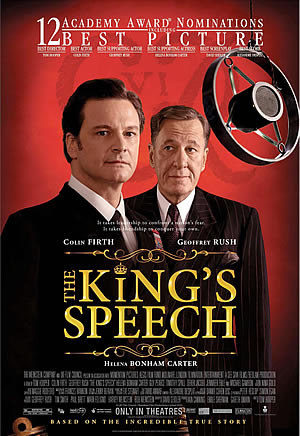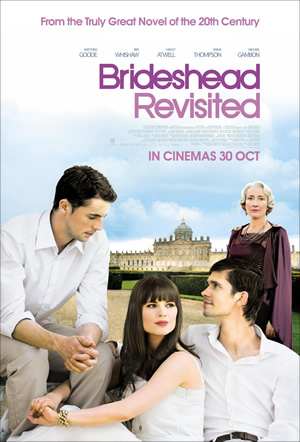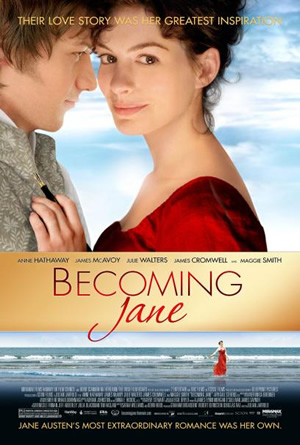A ROYAL NIGHT OUT (2015)
Genre: Drama
Director: Julian Jarrold
Cast: Sarah Gadon, Emily Watson, Jack Reynor, Rupert Everett, Bel Powley
Runtime: 1 hr 37 mins
Rating: PG13 (Some Nudity and Sexual References)
Released By: Shaw
Official Website:
Opening Day: 28 May 2015
Synopsis: A ROYAL NIGHT OUT is a film about one perfect, glorious evening in the lives of two real-life princesses. They are Elizabeth and Margaret Windsor at and the night is 8 May 1945, V-E Night. The whole of London is on the streets to celebrate the official end of World War II in Europe. It is known the young princesses, aged 19 and 14, slipped out of the palace to join the communal euphoria and went dancing at the Ritz. They apparently returned to Buckingham Palace just after midnight. Directed by acclaimed UK director Julian Jarrold (Becoming Jane, Brideshead Revisited), A ROYAL NIGHT OUT is an affectionate ‘what-if’ story about the adventures Elizabeth and Margaret might have had on the joyous night that brought the whole of London together.
Movie Review:
Just as what the title suggests, the film chronicles the (imagined) night out of then-Princess Elizabeth, present-Queen Elizabeth II, and her younger sister, Princess Margaret on the night of 8 May 1945, the end of the World War Two in Europe. After six years of being at war, both princesses were allowed a night out “in cognito” to mingle with the celebrating crowd (fact). What was meant to be a tame night quickly escalated to the princesses leaving Ritz to the criminal underbelly of the British capital (probably fiction).
In all honesty, the start of the film did not bode well, with long close-ups of Princess Elizabeth (Sarah Gadon) interspersed with actual black and white footage from 8 May 1945 – a precursor to what felt like an historical drama that would take itself all too seriously. Thankfully, it was a challenge for the film to go down the serious historical drama route with the force of nature that is Princess Margaret (Bel Powley), the incompetent chaperones, and the worrywarts King George V and Queen Elizabeth (played by Rupert Everett and Emily Watson respectively). With such colourful characters throughout the movie, Gadon’s Elizabeth nearly fades into the background, if not for the movie focusing hugely on her Amazing Race across London with AWOL soldier Jack (Jack Reynor) in tow.
In a way, the plot is the clichéd “princess goes out to the big, bad world, and somehow manages to return unscathed, while learning about the plebians that she would one day rule” story, saved by its comedic elements and the context – the emotive end to the WWII. In addition to learning how the average Brit celebrates in pubs, what was more interesting (to the writer, at least) was the war – the wreckage done to the city, sufferings of the common man, and the mistreatment of soldiers. The film also touches on the uncertainty after the war and the new world order (foreshadowing the upcoming Cold War and shifting of power), which, to the history buff, made the show more than just an imagining of a frivolous night out.
For the audience not particularly interested in European and World History, the antics of the impossibly ditsy Princess Margaret interspersed throughout the film served to lighten the atmosphere. Being the antithesis of the sensible and way-too-responsible Elizabeth, Powley plays the impulsive and naïve Margaret entertainingly well, as she flits from party to party, somehow narrowly avoiding being harmed on multiple occasions. Perhaps she played the role too well, as the character quickly gets irritating, falling into the stereotype of the irresponsible rich, young heiress who is the epitome of ignorance is bliss.
Adding on to Powley’s comedic efforts was the bantering between Everett and Watson, or the King and Queen, who were at once worrying about the King’s stuttering (Refer to The King’s Speech), their daughters getting lost somewhere in London, and waxing lyrical of the potential new world order after the war. Despite the relatively short screen time, Everett and Watson were memorable in their roles – protective parents, aging monarchs and tea-drinking British citizens.
In contrast to her younger sister floating throughout London, and her parents waving to crowds from Buckingham Palace, Elizabeth somehow got the shorter end of the stick, tumbling her way (literally) across London and always one step behind her sister. That said, if not for Margaret, Elizabeth’s own night out in London would probably not take place, as well as her character development as she comes in contact (sober) with people from all walks of life. If not for Margaret, the some-what romance between Elizabeth and angst AWOL soldier Jack, convincingly portrayed by Reynor, would also not be able to come through. That said, this romance came out as forced, and did not seem to add much to the film.
In-between the sentimentality of the end of the war, the comedy of errors of-sorts, and the character development of Princess Elizabeth, one would expect that the film would have too many areas of focus. That said, the film is not bad per se, as through the tropes and stereotypes, it somehow works. Coupled with the film’s timely release on the 70th anniversary of the end of WWII, and the recent spate of good news concerning the UK monarchy, it is likely to be a crowd-pleaser, depicting the lighter side of the end of the war.
Movie Rating:




(A Royal Night Out does not deviate much from its expected content, but the actual film does not disappoint, and serves as an interesting take on a little-known fact about the war)
Review by Goh Yan Hui
You might also like:

Movie Stills
